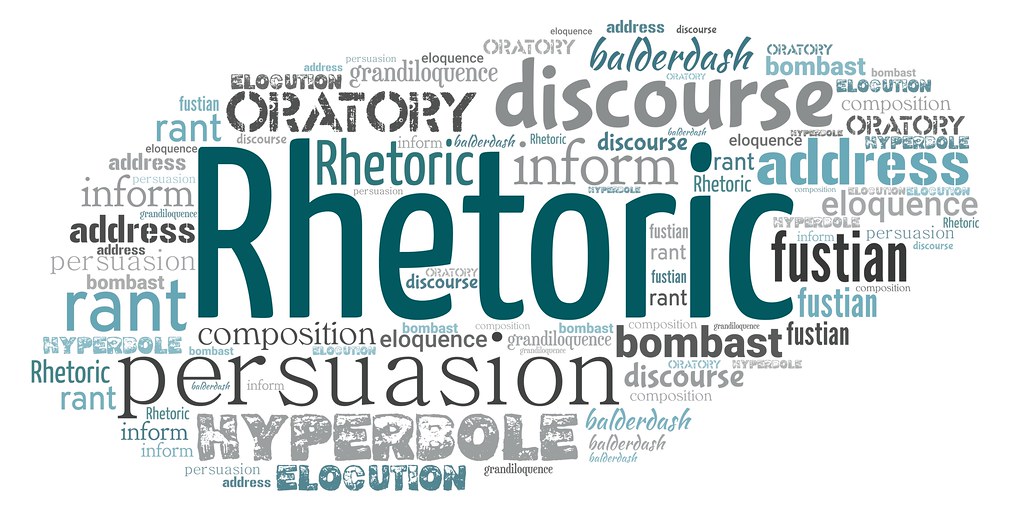
Rhetoric is power. As Mr. Plato from ancient Greece puts it, “rhetoric is the art of ruling the minds of men”. I heard this quote back in my tenth grade English class, and my chin jolted up in interest. Now, I may have zoned out soon after as my teacher droned on about logos, ethos, and pathos… but the important thing is that this was my first definition of rhetoric. After nearly five years of learning what I was told to be “persuasive writing” and a consecutive three years of learning about “rhetoric”, I realized once we put out the fancy lights and cut down the term to its bare bones, rhetoric is really just an ability one can learn and develop.
Of course, I’m not trying to denounce the interpretations of other rhetors like Kenneth Burke who views rhetoric as symbolic action or even George Kennedy who claims rhetoric to be a form of communicative energy. To be honest, I also nodded my head in agreement as Michael Young eloquently convinced an entire english class that rhetoric is literally everything.
Additionally, the sophists viewed rhetoric as wisdom, something that they could teach and sell to other people. This idea was widely unpopular as it meant that they were teaching people how to get away with bad things. However, the sophists argued that wisdom had some sort of “truth” and that true rhetoric can never be “bad” as it reaches for the truth.
Plato called bullshit on this and so do I. Rhetoric is similar to a tool, or better an ability one acquires over time. It can be used for good and bad by the user, but in of itself, it has no bias. Let me demonstrate just how powerful rhetoric can be.
Last week a friend of mine came to me for help. She had forgotten to submit an important assignment and had been so occupied with her finals work that she did not reply to her professor’s many emails asking for it. From a student’s perspective? Understandable. From a professor’s? Unacceptable. Her professor was furious, and rightly so. He was determined to give her a zero on that assignment and that would mean she, a normally straight A student, would get a B in that class.
Infamous as a veteran late work submitter, she came to me for a solution and I had one ready. The art of submitting late work is really all rhetoric. Your goal is to persuade your intended audience to give you most if not all the points for the late assignment. First, you must start your email with praises and put the professor in a good mood. To make this rhetoric work it is necessary to hook the audience so that they will listen to the rest of your argument. Then sympathize with them for how stressful it must have been because of you. This is still part of the hook, but you are going a little deeper using pathos to develop an emotional connection with the intended audience.
Then make them sympathize with you and explain your situation. Rhetoric is, in essence, a conversation, there is a give and take. You expressed yourself so allow your audience to express themselves.
Lastly, and most importantly, make it about them, not you. Don’t show that you are desperate and anxious to get a good grade, tell the professor that you understand that you might not be able to receive late points and that’s fine, but tell them you want them to look over and give you feedback so that even if you don’t get the grade you still learn from it.
This is important because it sets up your ethos. You’re a good student. You care about the class. You care about learning, and you respect the feedback of your instructor. Show the professor that you have the credibility of a truly good student (even if you really don’t).
Now, this is where your work will also shine. You used the foot in the door technique to make your professor give your work a chance, even if they intend to not grade it. Set up your logos by showing the professor how much effort you put in and how worthy it is of getting a good grade. Make your assignment so powerful and effective that the audience feels a desire to give you credit for such amazing work.
There we go! The rhetoric of getting away with late assignments. Now that is true power. Thanks Professor Young for unleashing my true potential!
(P.S. I just thought it was really funny how I was explaining things in rhetorical terms. The last part of this blog post is basically a rewording of what I sent my friend through text.)